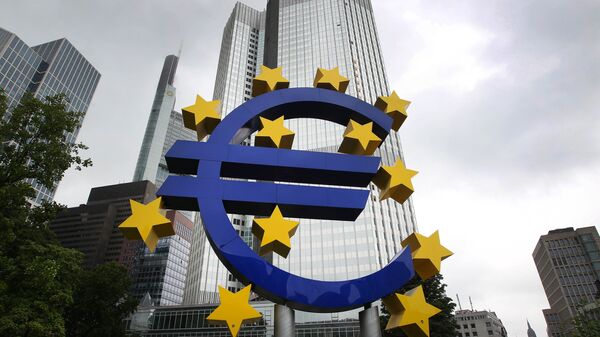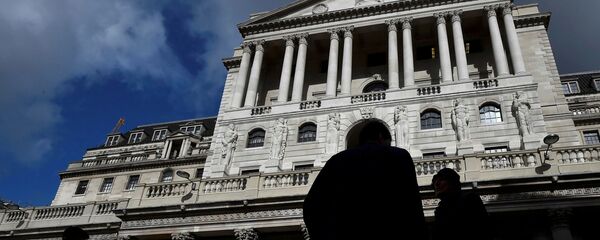Kristian Rouz – The European Central Bank (ECB) is unlikely to drastically change its policy course over the next few years, ECB President Mario Draghi hinted, as he believes the central bank’s stimulus program will drive an expansion in salaries and wages, and consumer purchasing power in the bloc.
Draghi expects eurozone workers to see higher salaries in the near term due to the negative and zero-interest-rate policies of the ECB, meaning the regulator is under heightened pressure to maintain its policy course.
Mario Draghi speaks at ECB about euro-area economy and outlook for its recovery 👇 https://t.co/tbyNM1G4C2
— Bloomberg (@business) 17 ноября 2017 г.
This as the accommodative policies have produced significant spillovers in the single currency bloc’s economy in the last two years.
However, critics say the ultra-loose monetary policies have resulted in the bloc’s economy becoming a “zombie” economy on life support, with many jobs and wage levels being artificially supported by the central bank’s asset purchases and the low costs of credit.
READ MORE: Report: Most UK Firms Will Trigger Brexit 'Contingency Plans' Without Transition
Draghi, on his part, urges for patience, as he expects new positive developments in the economy to reveal themselves as a result of the ECB’s policies, which – he believes – have not yet completely worn off.
"With well-anchored inflation expectations, the effects of past low inflation in wage formation should not be persistent," Mario Draghi said at a conference of bankers and policymakers in Frankfurt, where the ECB is situated. "As the labour market tightens and uncertainty falls, the relationship between slack and wage growth should begin reasserting itself. But we have to remain patient."
Draghi downplayed any expectations of possible policy normalization in the form of lower asset purchases (even though the ECB cut its monthly bond purchases from 60 billion euros to 40 billion several weeks ago) or interest rate hikes, as he sees his policies as bringing improvements to the eurozone’s productive forces.
"A key motor of the recovery remains the very favorable financing conditions facing firms and households, which are in turn heavily contingent on our policy measures," Draghi said.
Business leaders disagree, saying the ECB policies do not correspond to the economic reality in some eurozone member states – in Ireland, for example. They say Ireland’s rise in property prices demands quicker gains in salaries and wages, and patience and trust in the ECB is not enough to give people their own homes.
Draghi’s ECB will buy an additional $3 trillion worth of bonds through September 2018, and will continue doing so “if needed.” He says this policy helps the ECB’s broader approach to monetary regulation.
"Asset purchases matter also for the signals they entail about the path of future policy rates: the so-called ‘signalling effect," Draghi told a banking conference. "The signaling effect of asset purchases has therefore naturally increased in prominence relative to the duration effect."
Addressing the ISME’s concerns, Draghi said salaries and wages would eventually pick up as a result of his six-year-old policy course.
This is, however, uncertain.
"The good news for the ECB is that compensation per employee is trending upward again; the bad news is that the growth rate remains too weak to be confident about inflation returning to target," Maxime Sbaihi of Bloomberg notes.
IG Metall, the biggest German trade union, is seeking a 6 percent pay increase, which is not realistically possible with the current eurozone inflation way below the ECB’s 2 percent target.
Draghi has called for patience, though has yet to propose a feasible solution.







